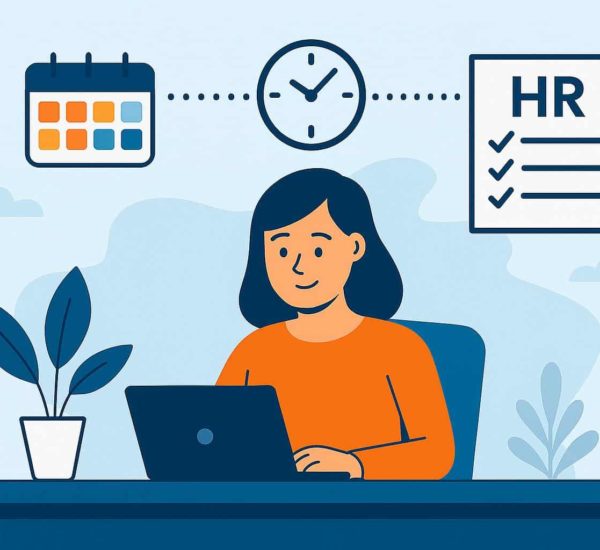There are many types of leaves that an employee can take while working at any organization. Some are paid or unpaid federal holidays while some are paid time off. Every organization has a different leave policy. Sick leave, casual leave, religious holidays, and maternity leave are just a few types of leaves granted at workplaces.
This article will however look into the details of paid sick leave. Some of the things you will be going through include statutory sick pay or SSP and the employees who are eligible to get this. Along with this, you will also find out the benefits of statutory sick pay and the current SSP rate in the UK.
What is Statutory Sick Pay?
Statutory sick pay is an amount that all employers must pay their employees for the first 28 weeks of their absence due to an illness. The illness can be either due to an accident, a contagious disease, or a disability and if an employee has difficulty doing things physically.
This rule has been in action since the 1982 Act of Social Security and Housing Benefits. However ever since the pandemic, the need for SSP has risen. The UK government’s top priority has now been to compensate the workers during sickness from the COVID-19.
To tackle the problems that arose due to coronavirus, the government of the UK set aside billions of pounds. Narrowing down to the subject of sickness pay during the COVID, the UK government fixed an amount of £94 a week. The amount is for those in quarantine and their caretakers.
How Much is Statutory Sick Pay?
According to the government, the statutory sick pay rate for employees is a sum of £96.35 per week for up to 28 weeks.
Employees can not be given less than this amount, however, if an organization has a sick pay scheme, they can be entitled to more than this minimum rate.
When is an Employee Eligible for Statutory Sick Pay?
For employees to get the SSP, they must have an employment contract. The statutory sick pay rules for employees are as follows:
Eligibility
- You should give statutory sick pay to employees if they are too sick to work.
- If including the non-working days, an employee is ill for four days in a row, you must pay them the SSP.
- You should give an employee their sick pay if they earn £120 per week.
- Employees are eligible for statutory sick pay if they’re on furlough.
Exceptions
- Employees must reach the sickness period criteria for getting sick pay i.e. if they are sick for four or more days, or they get sick again within 8 weeks or less.
- They don’t qualify if they are self-employed.
- They don’t qualify for the SSP if they are getting statutory maternity pay or If it’s a pregnancy-related issue 4 weeks before the baby is due. For that, they are entitled to another type of leave.
- They don’t qualify if they’ve received a maximum of SSP for 28 weeks.
Notification Requirements
- An employee must tell you they’re unable to work before the deadline set by you. Otherwise, some of their statutory sick pay gets deducted.
Proof of Sickness
- You should pay an employee statutory sick pay if they show you a sick note. A sick note is given to the employee by their doctor, confirming they’re ill.
Statutory Sick Pay and COVID-19
The eligibility for SSP during the pandemic is as follows:
Eligibility
- If an employee is in self-isolation after contacting COVID-19 or they live with someone who has the virus, they are eligible to get statutory sick pay.
- If they have been notified by the NHS of their possible contact with someone with COVID, you should pay them the SSP.
- If an employee comes into contact with someone in their circle with COVID symptoms, they are eligible for statutory sick pay.
- If they have been advised by a doctor to quarantine before they undergo surgery, they are entitled to get sick pay.
Exceptions
- If an employee is self-isolating simply because they’ve entered the UK recently, they are not eligible to get statutory sick pay.
- Employees are no longer eligible for statutory sick pay if they’re shielding because of COVID-19.
Proof of Sickness
- If an employee is self-isolating they need to show you the isolation letter obtained from their doctor.
- All sick employees should be paid from the first day they qualify for the sick pay.
When is an Employee not Eligible for Statutory Sick Pay?
Some other rules for ineligibility are:
- If employees had Employment and Support Allowance in the last three months.
- If they are in the army, are detained, or are in legal custody.
- If they are agricultural workers.
- If they are working outside of the EU.
How to Claim Statutory Sick Pay?
To claim statutory sick pay employees must:
- Provide proof of their sickness in the form of a sick note.
- Make sure they are eligible for sick pay.
- Fill in the statutory sick pay form given at this link to support their claim.
For Employers: How to Claim SSP Due to COVID?
According to the coronavirus SSP rebate scheme, employers can claim statutory sick pay which is paid to employees. You can claim back up to 2 weeks of SSP if:
- You have already paid SSP to your employees
- You have a PAYE payroll scheme starting from February 2020.
- You had less than 250 employees in February 2020 across all the pay as you earn PAYE schemes.
Some Rules to Claim SSP for Employers:
- You can claim for more than one employee
- You can not claim for more than 2 weeks
- You can claim back SSP using this online service.
- If you are eligible but cannot claim, contact HMRC.
Sick Pay vs Holiday Pay
Sick pay for employees is paid to an employee when they qualify on the basis of their sickness. However, holiday pay is an allowance that you pay your employees when they are on holiday. It is paid as a bonus to the employee.
Some rules for SSP during a holiday are:
- An employee cannot get both statutory sick pay and holiday pay at the same time.
- An employee can take a holiday if they are sick in cases like:
- An employee’s sickness gets better if they holiday
- If they are physically too weak to work, but they can still holiday
- If they have long-term sickness, a holiday can help them get better.
It is up to an employee, however, if they want a holiday when they are sick. In any case, an employer cannot force an employee to take a holiday while they are sick.
If an employee gets ill on a holiday:
If an employee wishes to take a sick leave during their holiday, they must show their medical report to you. In this case, they are entitled to receive statutory sick pay for the time they are or were sick.
Sickness Benefit
A sickness benefit is a form of allowance that an employee gets if they are too sick to work either due to injury or disability. Employees can avail of sickness benefit for up to 120 days a year. An employee can claim a sickness benefit if:
- Employees have difficulty getting things done physically
- They are disabled
- They are sick
- Have contagious illness
- Suffer from mental illnesses
Statutory Sick Pay Scheme
There are a few upcoming changes from 2022 to the ruling of SSP in Ireland. According to the statutory sick pay scheme, all employees will have the right to get paid sick leave. Some points of this scheme include:
- Employees will get paid sick leave for 3 sick days in 2022, increasing up to 5 days in 2023, 7 days in 2024, and 10 days in 2025.
- All employees will have the right to redressal if their organization doesn’t provide them with statutory sick pay. If an employee doesn’t get sick pay despite it being in their employee contract, they can complain under the Payment of Wages Act. To complain, they need to fill in the form given at WRC.
- Employers are liable to pay about 70% of the normal pay as sick pay to an employee.
Conditions for the SSP Scheme
- For employees to get the SSP, it is important for them to be working for their employer for at least 6 months.
- In addition, a certificate from the general practitioner is to be shown to avail the employee sick pay.
Some Benefits of Having the Statutory Sick Pay
Setting up SSP pay for your employees can have several advantages for you:
Increased Employee Retention
According to a survey, including sick leaves paid or not, can help reduce turnover in your organization.
Shows You Value Your Employees
Allowing your employees to take time off when they are sick and paying them too, will show them you care for them. This helps to build a relationship of loyalty between both parties.
Stops the Spread
When you allow your employees some time off during their sickness, it helps stop the spread of the illness. This is especially important if an employee comes in contact with contagious illnesses like the COVID-19.
Higher Productivity
When an employee gets sick, it is likely they will affect other employees too. However, when they are allowed sick time off, other employees will work unaffected. Time off work will also freshen up the sick employee and when they return, they will work more productively.
The Work-Life Balance
When an employee takes a paid sick leave, it helps them maintain their work-life balance. It also helps them especially in cases when there is no other person in their family to support them financially.
Frequently Asked Questions about Statutory Sick Pay
What Happens If an Employee gets Sick on Public Holidays?
If an employee is a full-time worker and is on sick leave during public holidays, they can get the Illness Benefit for missing those holidays. On the other hand, if a part-time employee is on sick leave during the public holiday, they can request compensatory time off work later for the holiday they missed. The only rule here is that they should have worked for you at least 40 hours in a period of the last 5 weeks.
What Happens if an Employee is Sick Right Before the Public Holiday?
Part-time employees in particular are not eligible for a paid or unpaid public holiday following the paid sick leave.
What Happens to the Sick Pay If:
An Employee has had an Occupational Accident
If a part-time employee has taken at least 52 weeks or more off due to an occupational accident, they are not eligible for pay or time off for a public holiday.
An Employee has had an Ordinary Illness
A part-time employee is not entitled to pay or time off work for public holidays if they have taken time off work for more than 26 weeks pertaining to ordinary illnesses and accidents.
What Happens to the Annual Leave if an Employee is Off Sick?
If an employee falls sick on their annual leave, these days are not to be counted as annual leave. However, it is important that employees get a medical certificate from their GP to avail their annual leave days at another date. If the employee shows you their medical certificate, you cannot insist they take annual leave on days they are sick.
Can an Employee Build up Annual Leave?
An employee can build up their entitled annual leave during the time they are sick. The only condition is to have a medical certificate for their sickness. In case of a long-term illness, they can carry it over for 15 months after the end of the year. If within these 15 months, an employee decides to leave the job, employers should pay them for the leave they didn’t take due to their illness.
Rules for Sick Leave and Sick Pay
Sick leaves paid or unpaid, come with rules:
- Employees can apply for Illness benefit and sick pay at the same time.
- An employee contract should have clear details of sick leave. This should include the time period for which employees can get paid sick leave. It should also mention that if any employee is too sick to work, they will notify the relevant person.
- If an employee is unable to work for longer periods of time, they may lose their job. However, in case of unfair dismissal, they have the right to report to the authorized people.
- If an employee sustains an injury during work and doesn’t get the sick pay, they can however avail of the injury benefit, which is the form of a weekly payment.
Final Word on Statutory Sick Pay
Keeping the record of when an employee takes time off of work is important work at any organization. Employers need to track every time an employee takes leave and whether they are eligible for it or not. Be it statutory sick pay or any other type of leave, you should keep in mind the rights of employees. Paying employees on their sick leave benefits not only the employees but your organization too.
The good news is, AttendanceBot makes it easier for employers to approve and track leaves. It also helps you manage the pay that an employee gets on their paid time off. Plus it works from right within Slack to make things easier for you.







